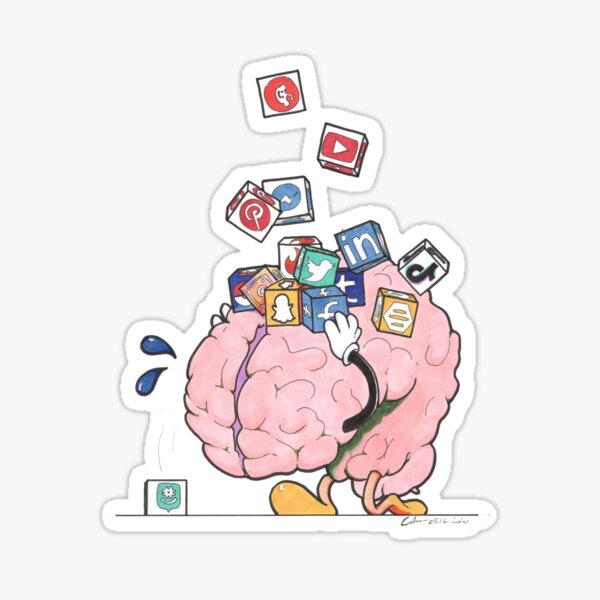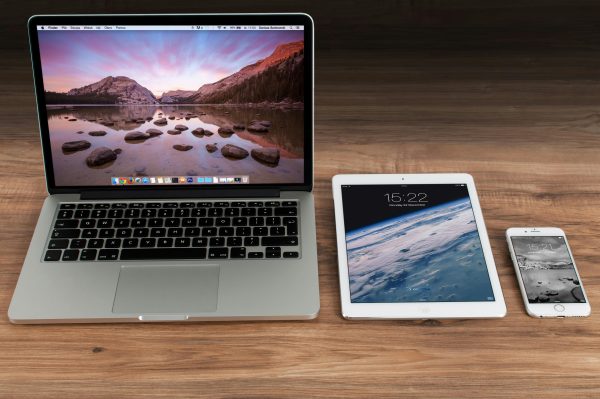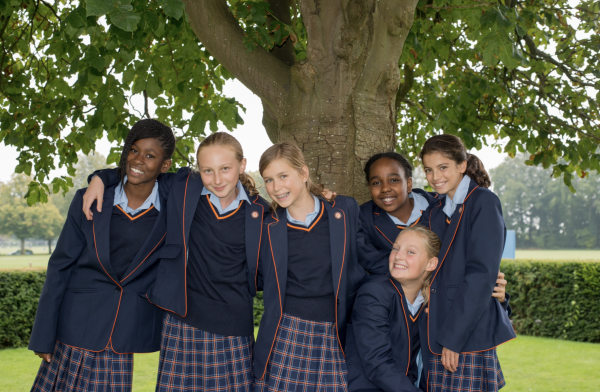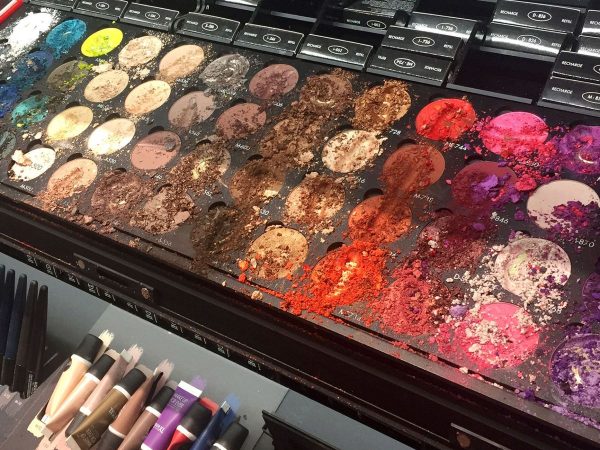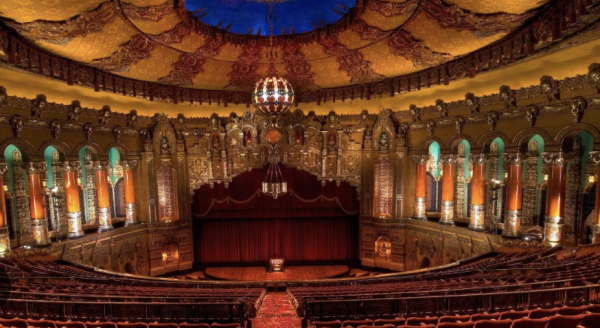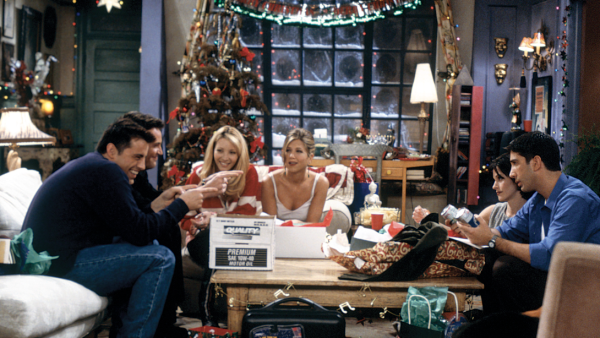A Letter to the Social Media Generation
“You guys are always on your phones.” “It’s not healthy to be on your phone so much.” “Social media will rot your brain.” I’ve heard this; you’ve heard this. General cliches are tossed around in articles or by our parents that use five words to overlook the real issues of the technological age. They blame the barely developed teenagers for blindly depending on the little boxes that were handed to us. Although there is some truth to these accusations—long-term effects of screen usage, like loss of patience, inability to entertain ourselves, and maybe, an increased risk of anxiety and other mental health issues—they oversimplify the problems of social media. Meaning, social media is more complex than a tagline and has more intricately affected our lives. To get to my point, It’s not just the app on our phones, but how the apps have shifted the environment of our entire culture. As a result, we as high school students are feeling the weight of social media on a day-to-day basis that these cliches fail to account for.
So, dear generation Z—those who are always on social media, those who aren’t, those who were active on Snapchat in middle school that gave way to heavy Instagram posting that now barely scroll through either, those who are severely addicted to TikTok, and even our parents—let’s unpack how these apps truly define our lives, or at least my life, and, I assume, many others’ lives at Berkley.
Let’s start from the beginning: Snapchat. For many, including me, this was the magic platform for a middle school child. I hid it from my parents in seventh grade, until I could freely send half-faced selfies to the world without fear. At the time, Snapchat was my most active app and was an essential form of communication with my friends, more so than a text message. Other than messaging to make plans with friends, I most often used its public story feature to post and view others’ social activities. Meaning, as a twelve-year-old, Snapchat was a public platform to project my social life, which I desperately wanted to prove I had. Similar to the way my friends and others were using the app, Snapchat usage eventually led to the first negative outcome of social media—FOMO (fear of missing out). For a pre/mid pubescent child seeing your friends hanging without you, whether it be just two or the whole group, crippled the world around you. Fears such as, I’m distancing myself from these people, they don’t like me, I won’t have friends, etc, circled my mind. However, these fears were rooted in others’ perceptions of the app, because did I actually care that people were hanging out without me? No. At this age, friendships were minor connections that were mainly for occupying your time with activities and kid-like adventures; they were not soul-binding or dramatic relationships to irrationally fear losing.
Thus, as little Sarah stopped having 54 Snapchat notifications to people she never hung out with and with whom she had no interest in their lives, my phone activity shifted to Instagram. This transition paralleled my entry into high school. Unlike Snapchat which involves a smaller crowd receiving my posts, Instagram expands the digital world. In turn, before my brain could even process the environment of high school itself, my real life and that of my following started to blend. Overall, this meant my or others’ followers determined their relevance, or in better words, I viewed my fellow students through the lens of their Instagram. This sounds extreme, but let me explain: I interpreted people’s interests or vibes, if you will, using Instagram, as we all do! With this analysis, I then tried to reflect myself on my profile. How did a fourteen-year-old navigating high school, and herself, define her entire being through pictures? She couldn’t, so I tried to come off as who I wished I was. Ironically, I tried to radiate the ideal persona on social media by copying others’ personas on said social media.
This sets us to the present: my relationship with social media as a 16-year-old girl who has a more developed sense of self and personal relationships. Today, I rarely scroll on Instagram and only Snapchat my close friends but scroll on TikTok religiously. With my social media usage at its lowest, I’ve noticed that the actual moment of scrolling on the app is less influential than the existence of the apps in general.
So, if the last couple paragraphs of tangential sentences of personal, weirdly detailed experiences that probably will make you question my entire validity as a person, were completely unrelatable, keep reading so we can get into the deeper implications of these apps. Mainly, we see more people than we were ever meant to see. More specifically, we see people’s lives, thoughts, and activities through TikTok videos, Instagram posts, Snapchat vlogs, or any media site. Because, essentially, posting on social media is giving us access to their lives. Many might propose that these posts are filtered or that they’re “a highlight reel”, and, yes, these cause unattainable standards that are unrealistic in our own lives, but even more so, the filtered and unfiltered show us more than we were meant to know. In turn, our standards for average are far above the actual average. These standards alter our perspective towards each other and ourselves to be set in the context of millions of other people’s thoughts, looks, or actions. Therefore, walking down the halls our brains are not just accounting for Berkley students’ opinions, but that of the entire internet.
Whether or not we consciously care about what others think, Scientific American (the oldest continuously published magazine since 1845 that covers the most important research findings) states, “Humans have a fundamental need to belong and a fundamental desire for social status.” As a result, “information relating to our reputation and social rank is particularly important” and “we are wired to be sensitive to this.” Thus, subconsciously, our outlook on life is modified by social media. Overall, these apps are impossible to ignore, and whether you use them or not, we are all influenced by their presence.
To summarize, it may sound extreme, but social media has reshaped our day-to-day experiences to incorporate the viral reality (the input of the internet). To better understand this concept, imagine someone has just gotten a haircut, from their natural dirty blonde hair to bright pink with bangs: at first you can barely recognize them; they look completely different. Eventually, their new image becomes your primary picture of them, and you can no longer imagine them with their original hairstyle. Similarly, when we become accustomed to someone’s social media profile, their persona in reality eventually shifts to that of their profile. In large, this skews our general perception towards life, since it molds to incorporate the images we are accustomed to on the internet.
As a result, we are more self-critical, competitive, and feel greater societal pressures because we are exposed to content that sets higher expectations for each other. In all, I’ve found myself maturing and trying to find myself quicker because, unlike past high schoolers, we are confronted with exposing ourselves to viral content before we can develop ourselves in the real world.
If you read this and consider yourself exempt from these behaviors because you “don’t have any social media” or “aren’t active on anything”, consider this, do you think our parents ever saw anyone outside of their town, or suburb, or city, without visiting those areas? So, in a deeply digital era, is it possible to authentically represent or express our identities in both mediums: reality and digital?
Personally, I think the two are intertwined: social media is shaping our identities, similar to how our upbringings are shaping them. As we walk down the hallways, talk to our peers or family, and especially when we express ourselves, we are projecting the content we absorb from our phones. Adversely, those not on the apps are still interacting with those on the apps, and are facing similar consequences. Consequences involve contriving the way we want to be perceived, criticizing the way others are perceived, and focusing on superficial values. In general, I am not worried about screen time or the lack of self-esteem, or any of these repetitive lectures on the negative aspects of phones, but rather if authenticity can be achieved when social media is so embedded in our culture.
In my ideal world, no one would have social media because even though today I can limit my internet exposure to almost nothing, the environment I am immersed in already faces the debilitating effects of social media: a standard of normal that is not normal, and ultimately the attempt to curate perfection.
To those reading this, wish us luck as we try to battle this distorted mirror that is social media,
Sincerely,
Sarah Cantor
Hey everyone! My name is Sarah and this is my first year on staff. I’m so excited to be the editor for the sports section and get first-hand experience...


